Discover Emergency Medicine Cases
Emergency Medicine Cases

385 Episodes
Reverse
On this month's EM Quick Hits podcast: Deborah Schonfeld on the differential diagnosis and work up of pediatric urinary retention & acute transverse myelitis, Jesse McLaren on his Tryptic Approach to Occlusion MI Diagnosis, Matthew McArthur on recognition and management of post-dural puncture headache, Joseph Yasmeh on Med Mal Cases: Clenched fist injury, Brit Long on IV thrombolysis for minor strokes and Victoria Myers & Lauren Westafer on mentorship and what it means to be a physician leader... Please consider a donation to EM Cases to support high quality Free Open Access Medical Education here: https://emergencymedicinecases.com/donation/
In this Part 2 or our 2-part podcast update on ED stroke management with Dr. Katie Lin and Dr. Walter Himmel we explore non-disabling strokes, where symptoms are mild enough that patients can continue daily activities if deficits persist. Yet, non-disabling does not mean benign. Non-disabling strokes occupy the same ischemic continuum as TIAs and carry a substantial risk of early recurrence with disabling stroke. In this EM Cases podcast we answer questions such as: Which patients with non-disabling stroke can safely go home with prompt follow-up and which require urgent investigation or admission? Which stroke mimics do we need to be on the look out for and how do we identify them at the bedside? How dangerous is thrombolysis in a patient with presumed stroke who turns out to be a stroke mimic? What are the key distinguishing features between a stroke and functional neurologic disorder? What are the most common causes of stroke in young people that we commonly miss? How does stroke etiology dictate the management pathway? What are the indications for carotid endarterectomy in patients with non-disabling stroke and what is the ideal timing of the endarderectomy? When is dual antiplatelet therapy vs single antiplatelet thereapy vs anticoagulant therapy indicated? What is the best medication strategy for the patient on a DOAC for atrial fibrillation who presents to the ED with a non-disabling stroke? For patients not on a DOAC for atrial fibrillation who come in with a stroke, when is it safe to start anticoagulation? and many more... Make A Donation: https://emergencymedicinecases.com/donation/.com
We are amidst a paradigm shift in the emergency management of acute ischemic stroke. The traditional way of categorizing ischemic strokes as 'minor' vs 'major' is no longer relevant to what we do in the ED. It's now about 'disabling' vs 'non-disabling' strokes. And this is no small change. This categorization dictates urgency of ED work-up and treatments, imaging choices, treatment decisions and goals of care. In this Part 1 or our 2-part main episodes EM Cases podcast series on management of ischemic stroke with Dr. Walter Himmel and Dr. Katie Lin, we answer questions like: How can we best rapidly determine if an ischemic stroke is disabling or non-disabling at the bedside? In what ways are 'wake up strokes' managed uniquely and what's the latest thinking on their pathophysiology? How should we best prioritize imaging depending on timing, geography and resources? How do we best predict large vessel occlusion amenable to endovascular therapy (EVT) at the bedside? How can we efficiently establish goals of care at the bedside to inform our emergency decision making around strokes? Which is better for thrombolysis in ischemic stroke - Tenecteplase or Alteplase? How have contraindications to IV thrombolysis changed over the last decade? When should we consider bridge therapy with EVT after IV thrombolysis? What are 4 key items the ED physician should have ready for the stroke neurologist on the first call? and many more... If you enjoy EM Cases content please consider a donation to help support ongoing FOAMed here: https://emergencymedicinecases.com/donation/
On this month's EM Quick Hits podcast: Dr. Isaac Bogoch on recognition and management of osteomyelitis in the ED, Dr. Anand Swaminathan on tourniquet tips and tricks. Dr. Andrew Tagg on managing pediatric distal radius buckle fractures & the FORCE trial. Dr. Justin Morgenstern on Delayed Sequence Intubation (DSI): RCT Takeaways. Dr. Brit Long on ESRD & Dialysis in the ED: altered mental status. Dr. Lisa Thurgur & Victoria Myers on leadership and medical education. Please consider a donation to EM Cases to ensure ongoing high quality free open access medical education here: https://emergencymedicinecases.com/donation/
Discover evidence-based sleep strategies for shift workers. Optimize performance, recovery, and health with tips from sleep expert Dr. Michael Mak... If you find this beneficial please consider a donation to support EM Cases: https://emergencymedicinecases.com/donation/
On this EM Quick Hits podcast: Tick Borne Illness Update with Dr. Issac Bogoch, Pediatric ECG Interpretation with Dr. Kathleen Stephanos, Nailbed Repair with Dr. Matthew McArther, Closed Loop Communication with Dr. Shawn Segeren, ESRD with Dr. Brit Long, Leaders in EM Dr. Catherine Varner... Please consider donating to EM Cases here: https://emergencymedicinecases.com/donation/
In this update to the 7 T’s of Massive Hemorrhage Protocols with Dr. Jeannie Callum and Dr. Andrew Petrosoniak, we explore the most current, evidence-informed strategies for bleeding patients, from polytrauma to obstetrical, drawing on the latest clinical trial data and real-world experience. We answer the questions: What is the evidence based alternative to FFP in EDs where FFP is not readily available? How accurate are decision scores in helping decide the trigger for MHP activation? Why is testing fibrinogen levels and giving fibrinogen concentrates so important in massive hemorrhage? How should we tailor our MHP to the GI bleed patient? To the obstetrical patient? and many more... Please donate to EM Cases to ensure ongoing Free Open Access Medical Education at https://emergencymedicinecases.com/donation/.
On this EM Quick Hits podcast: Pediatric Torticollis with Dr. Deb Shconfeld, Approach to Stable Wide Complex Tachydysrhythmias with Dr. Anand Swaminathan, Post-intubation Neurocritical Care 5 best practices with Dr. Andrew Petrosoniak, Hyponatremia Correction Rates with Dr. Justin Morgenstern, Paronychia Management with Dr. Andrew Tagg, and Women in EM Leader Series with Judith Tintinalli and Dr. Victoria Myers...Donate to EM Cases to help ensure continued Free Open Access Medical Education in the future here: https://emergencymedicinecases.com/donation/
In this podcast, with Dr. Thom Mayer, Dr. Carolyn Snider and Dr. Howard Ovens, on leading from the inside out, we cover foundational principles, practical habits, and transformative insights that can make any member of an ED team a more effective, compassionate, and adaptive leader. Here, you’ll find tools, philosophy, and stories that just might transform how you think about your role in the ED to make your work more satisfying, make your teams work together better and improve patient outcomes... Please consider a donation to EM Cases to help ensure we continue to provide high quality Free Open Access medical education into the future https://emergencymedicinecases.com/donation/
On this month's EM Quick Hits podcast: Dr. Mathew MacArther on Occipital Nerve Block, Dr. Ian Chernoff on PoCUS in Pulmonary Embolism, Dr. Hans Rosenberg on Myelopathy, Dr. Shawn Segeren on Team Resuscitation, Dr. Brit Long on Incidental Neutropenia and Dr. Kylie Booth on Peer Programs. Please help ensure continued Free Open Access of the entire EM Cases Learning System by donating here: https://emergencymedicinecases.com/donation/
There are many nuances in the management of patients with pulmonary embolism in cardiac arrest, peri-arrest or simply in shock: We need to optimize oxygenation and airway management, hemodynamic support, acid/base management, thrombolysis and/or catheter-directed therapies that Anton dives into with guest experts Dr. Lauren Westafer, Dr. Bourke Tillmann and Dr. Justin Morgenstern... EM Cases is proudly FOAMEd - Please consider a donation: https://emergencymedicinecases.com/donation/
In this month's EM Quick Hits podcast: Zafar Qasim & Andrew Petrosoniak on whole blood transfusion in trauma, Justin Morgenstern on calcium pre-treatment to prevent diltiazem-induced hypotension, Kiran Rikhraj on dynamic LV outflow tract obstruction, Anand Swaminathan on resuscitative thoracotomy, Andrew Tagg on uterine casts, and Jesse McLaren on scale & proportionality in occlusion MI ECG interpretation. **Please support EM Cases to continue to be free open access by making a donation: https://emergencymedicinecases.com/donation/
How do you predict which intermediate-risk patients will suddenly deteriorate? What role do risk scores, biomarkers, imaging, and hemodynamics play in decision-making? Should these patients receive anticoagulation alone, or is thrombolysis warranted? When should you consider catheter-directed or surgical interventions? This podcast focuses us to think critically about risk stratification, early interventions and escalation in care in PE. We include an algorithm in the show notes. Not all patients fit neatly into classification boxes, making clinical judgment crucial. Join Dr. Lauren Westafer, Dr. Justin Morgenstern, Dr. Bourke Tillman and Anton as they explore the key decision points, pitfalls, and lifesaving strategies for managing intermediate-risk PE in the ED...
On this month's EM Quick Hits podcast: Stephen Freedman on pediatric bloody diarrhea, S-TEC and hemolytic uremic syndrome, Justin Morgenstern on the evidence for IM epinephrine in out of hospital cardiac arrest, Matthew McArther on recognition and ED management of dengue fever, Andrew Petrosoniak on imaging decision making in trauma in older patients, Brit Long & Michael Gotlieb on recognition and management of TTP...Please consider a donation to EM Cases to help ensure continued Free Open Access Medical Education here: https://emergencymedicinecases.com/donation/
Eating disorders have the highest mortality rate of any psychiatric illness, yet they are frequently missed in the Emergency Department as they can be elusive. Only one in 246 patients who screen positive for an eating disorder at triage have a chief complaint suggesting it. These patients don’t always fit the stereotype—many appear “healthy,” have normal BMI, or present with vague GI, cardiac, or neurological symptoms. Missing the diagnosis has important consequences. The earlier an eating disorder is identified and the earlier that appropriate treatment is initiated the better the long term outcomes. In this episode, with the expertise of Dr. Samantha Martin and Dr. Jennifer Tomlin, we’ll break down the essential clinical clues, screening questions, red flags, and subtle exam findings that can help Emergency Physicians diagnose eating disorders early and initiate treatment to decrease mortality and long term morbidity in these young patients. Eating disorders need to be thought of as both a psychiatric condition and medical condition to optimize the pick up rate and appropriate management. Missing or mismanaging eating disorders in the ED means missing an opportunity to save a life and prevent long term morbidity...
Please consider a donation to EM Cases to ensure continued Free Open Access Medical Education here: https://emergencymedicinecases.com/donation/
On this month's EM Quick Hits podcast: Anand Swaminathan on optimizing RSI medication timing, Brittany Ellis on ED boarding challenges in older patients and solutions to ED crowding and flow, Dave Jerome on managing prolonged tourniquet application, Nour Khatib and Phil Gillick on a rural peer support case, Jesse McLaren on ECG reciprocal changes in acute coronary occlusion, and Melody Ng on practical nutrition tips for shift workers...
In this Part 2 of our 2-part podcast series on How EM Experts Think with Dr. Reuben Strayer, Dr. Mike Betzner and Dr. Scott Weingart we dive deep into the nuances of practicing smarter, faster, and better in the ED. We answer questions like: How should we employ hypothetico-deductive reasoning in our daily practice of Emergency Medicine? How can we best streamline thorough data gathering for each case so that we don't miss key data points? How do the master EM clinicians perform an efficient and targeted history and physical exam? How can the concept of heuristic cycling help you avoid outdated or faulty thinking? How can we document our clinical encounter in a way that considers a differential diagnosis that prioritizes dangerous conditions and improve our thinking around cases? How can we use the 2-10% rule for pre-test probabilities and the concept of preferred error to guide our decision making for tests and treatments in the ED? What strategies can we use to avoid anchoring bias and keep your mind open to all possibilities? What’s the role of shared decision-making when navigating diagnostic uncertainty? How does understanding the vigilance pendulum help us assess our risk tolerance better? How can post-shift decision journaling, conducting pre-mortems and meditation improve our decision making and boost our emotional resilience on shift? and many more...The accompanying blog An EM Expert Mindset - A Female Perspective is recommended reading with this podcast https://emergencymedicinecases.com/the-em-expert-mindset-a-female-perspective/
Please consider a small donation to EM Cases to ensure ongoing high quality FOAMed: https://emergencymedicinecases.com/donation/
Which elements of your current pre-shift preparation contribute most to your mental clarity and performance, and what new practices might further optimize your readiness? With interruptions shown to increase task errors and decision fatigue, how can you strike a balance between being approachable to colleagues and safeguarding your focus for patient care? When confronted with a particularly challenging or emotionally charged case, what strategies have you found most effective for maintaining professionalism and clear decision-making under pressure? How often do you debrief after high-stakes scenarios, and what impact has debriefing—whether formal or informal—had on your team’s learning, emotional recovery, and future preparedness? What strategies do you use to foster open communication and ensure all team members feel empowered to provide input during high-stakes situations? How do you mentally and emotionally shift from managing a critical resuscitation to treating lower-acuity patients without compromising your focus or energy? When faced with a complex case where diagnostic clarity is elusive, how do you prioritize your next steps while maintaining confidence in your decision-making process? How can apps, personalized workflows, or EMR tools be better utilized to minimize cognitive load and enhance clinical decision-making during shifts? These are just some of the questions we pose in this 2-part podcast series on How the Experts Think with Dr. Reuben Strayer, Dr. Scott Weingart and Dr. Mike Betzner...The accompanying blog An EM Expert Mindset - A Female Perspective is recommended reading with this podcast https://emergencymedicinecases.com/the-em-expert-mindset-a-female-perspective/ Please consider a donation to ensure EM Cases continues to provide you high quality Free Open Access Medical Education here: https://emergencymedicinecases.com/donation/
On this month's EM Quick Hits podcast: Ross Prager on TEE in cardiac arrest, Justin Morgenstern on nebulized ketamine for analgesia in the ED, Hans Rosenberg & Krishin Yadav on standardizing cellulitis management, Mathew McArther on latest studies on subcutaneous insulin protocols in DKA, Jennifer C. Tang on documenting differential diagnoses medicolegal tips...
In this EM Cases main episode podcast, we tackle the complexities of trauma airway management, including direct trauma to the airway. We discuss indications and timing of intubation, penetrating neck trauma, the head injured patient, the agitated patients and the soiled airway. The critical question is: when should we deviate from, delay or modify RSI, and how do we navigate the unique challenges presented by trauma airways and airway trauma? Dr. George Kovacs and Dr. Andrew Petroniak answer this and other questions such as: how should we re-sequence the trauma resuscitation depending on immediate life-threats? When is immediate vs delayed intubation recommended? How useful are the Zones of the neck in penetrating neck trauma? What is the optimal dosing of airway medications in the sick trauma patient? How should we modify our airway strategy for the severely head injured patient and/or agitated patient? When should we consider ketamine facilitated fiberoptic intubation in the trauma patient? and many more... Please consider a donation to EM Cases to ensure ongoing Free Open Access Medical Education here: https://emergencymedicinecases.com/donation/




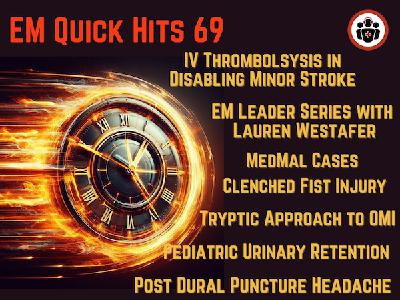
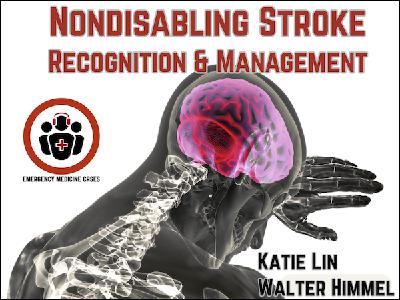
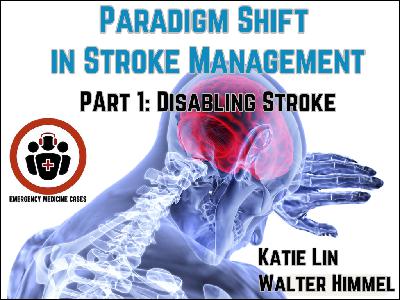
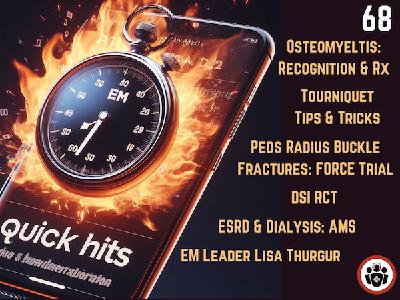
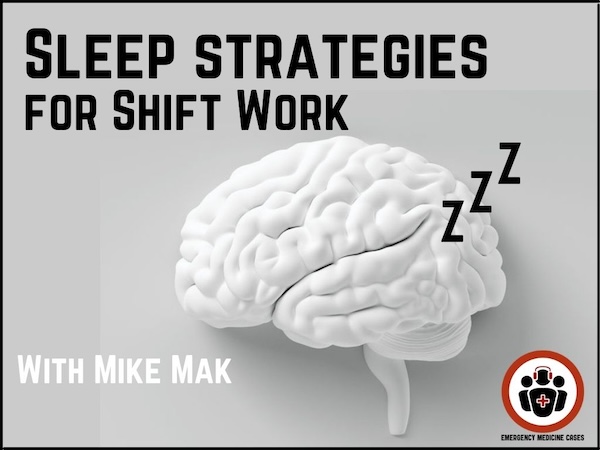
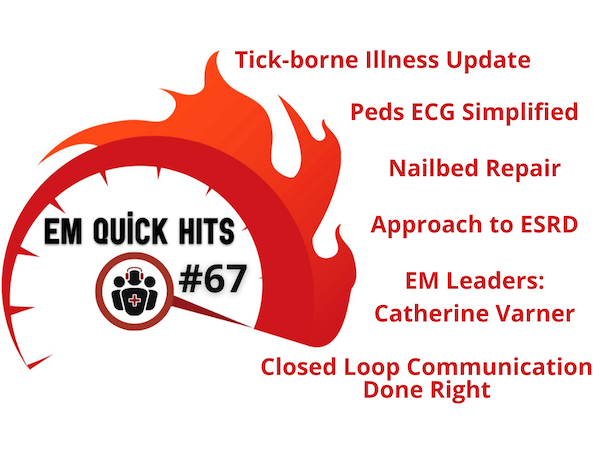
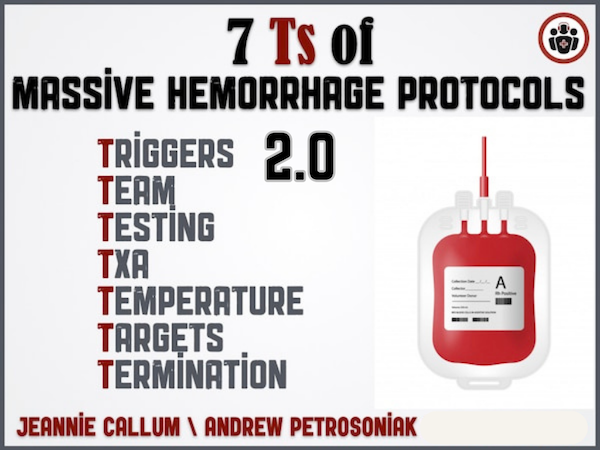
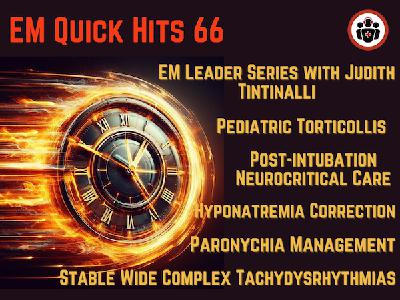
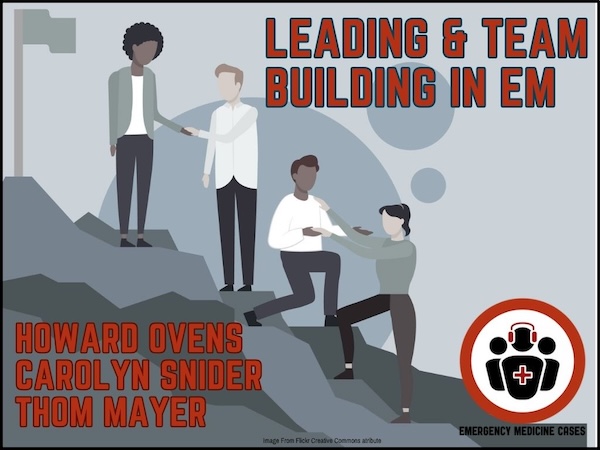
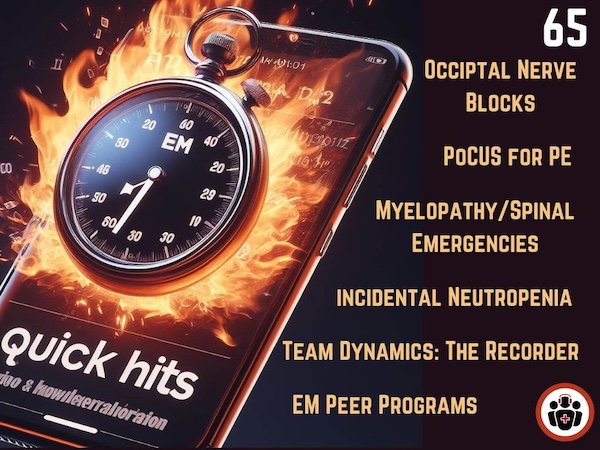
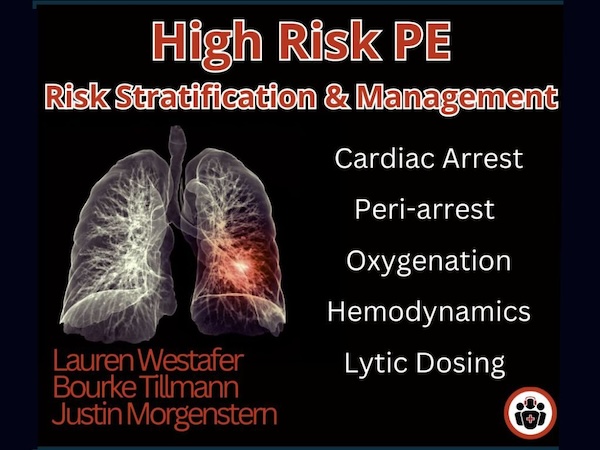











scribe
Great post🙏
i use podcastes in bed and i fall in sleep automatic. this guest was so energetic and made me energetic too and i cant sleep now!
Always available emergency medicine any condition.Dr Kathy Davis
We need more episodes like this one 👌
thanks you are the best
the neurologist is very lovely and the way he teach is amazing thank you
every time the intubation guy come i learn a lot and his voice is best
interesting
great stuff. im a big fan of your Show. thank you for all you do.
help....my granddaughter has epilepsy pots edloirs danlos eoe spinal stenosis and rumination syndrone. shes in pain all the time and throws up nothing helps her hair is falling out and shes tired all the time but drs here wont seem to listen to us. shes always putting things on social media on how she just wants to give up on life. please help us shes only 13 years old were at wits end
large vessels not small vessels
good
thanks
such a great explanation
Seem great statistics.